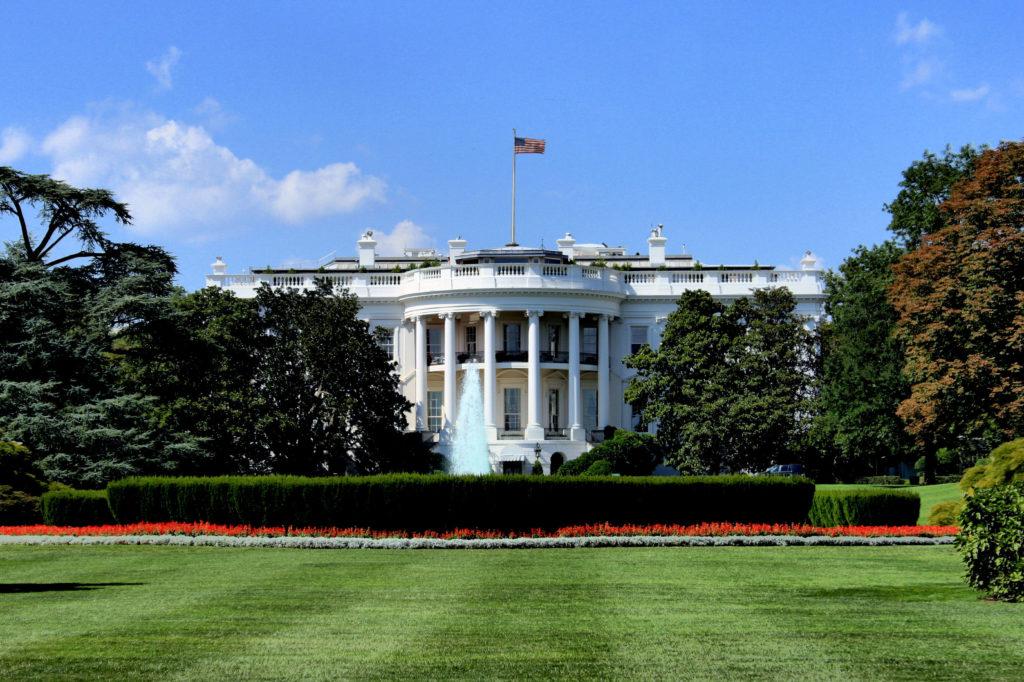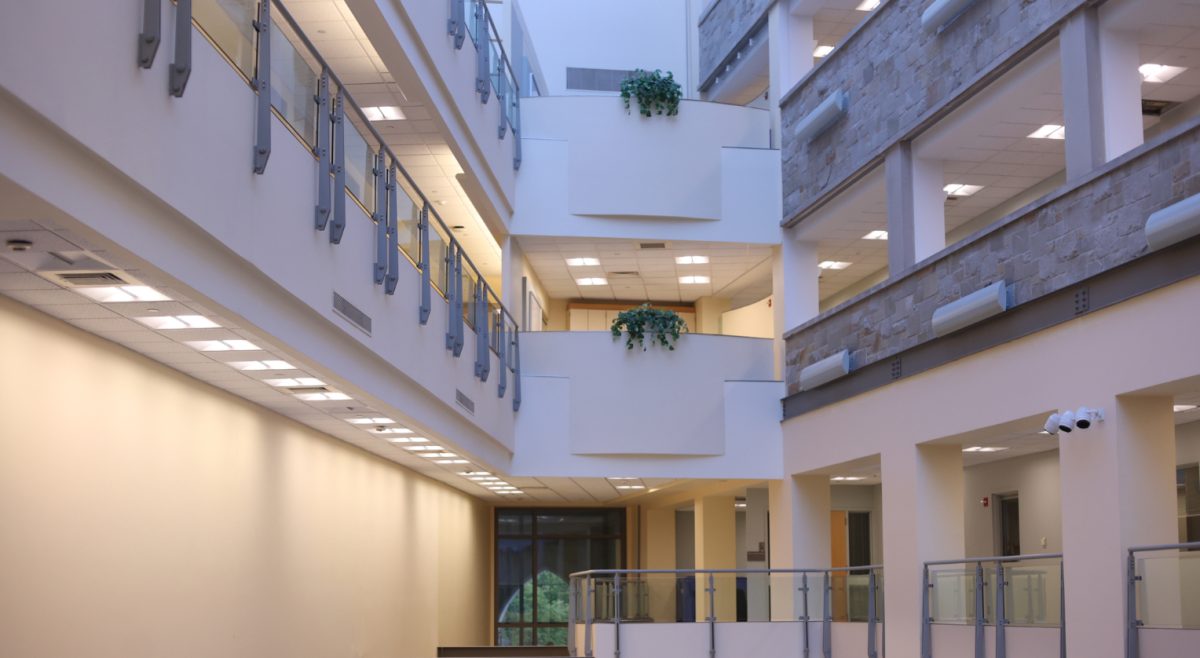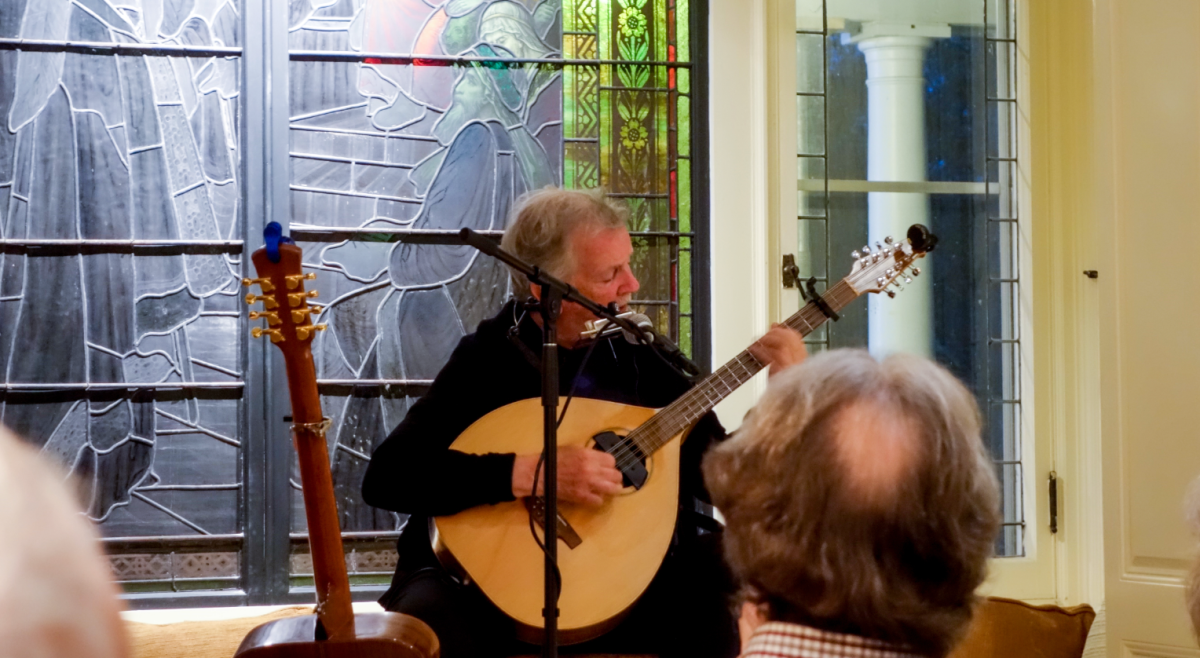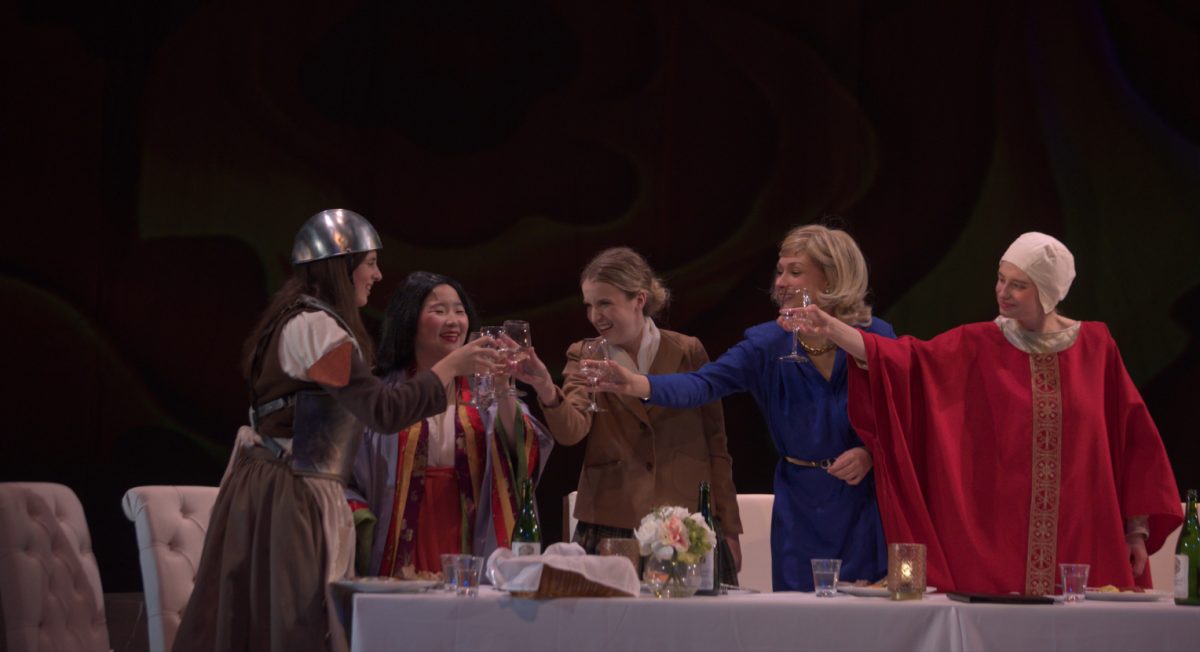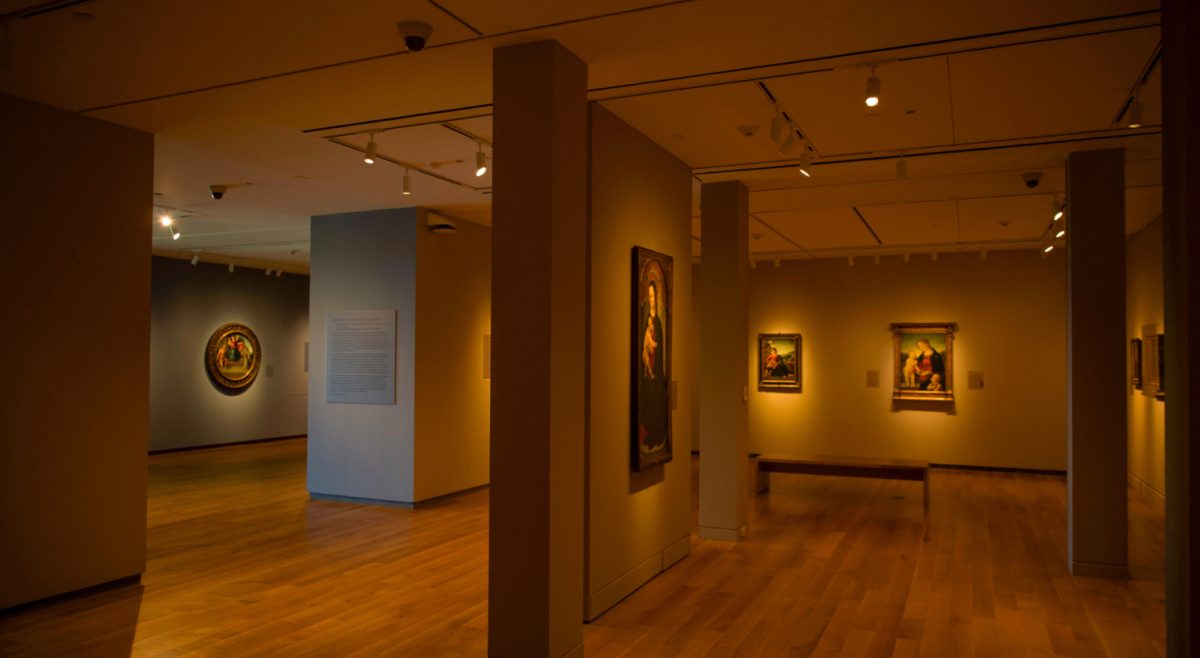With just under three weeks to go before the midterm elections occur, three former Obama staffers arrived at Gasson 100 to sell college students on engaging with politics. Former Special Assistant to the President and Principal Deputy Director of Public Engagement Stephanie Valencia, BC ’04, returned to campus with fellow White House alumni Gautam Raghavan and Rumana Ahmed. They also promoted their new book, West Wingers: Stories of the Dream Chasers, Change Makers, and Hope Creators Inside the Obama White House.
West Wingers chronicles the stories of 18 different members of the Obama administration. Dan Ponsetto, director of the Volunteer and Service Learning Center, made a point of highlighting the diversity of thought and background that went into the book during his introduction for the event.
“A majority of the stories are by women and by people of color—13 of the 18 stories. Contributors also include immigrants, LGBTQ individuals, people with disabilities, Muslim-Americans, and veterans,” he said.
Their literary agent, Cindy Uh, BC ’04, was Valencia’s roommate at Boston College for all four years and served as the panel’s moderator. She began by quoting one sentence from each participant’s chapter, starting with Valencia’s.
“The next morning I set my alarm for 7 a.m. Mountain Time,” she said. “I sat on the edge of the bed in my hotel room, my wedding dress hanging nearby, and watched the television as Sonia Sotomayor walked into the East Room, flanked by President Obama and Vice President Biden. In that moment, everything changed for me.”
Valencia joked that since the President had always been “the other man” in her relationship with her now-husband, it only made sence that her wedding collided with the nomination of the first Latina woman to the Supreme Court. Her chapter reflected both on the meaning she drew from this nomination as a young Latina and its influence on her community.
While others may have been annoyed to see their work-life seep into their big day, Valencia had the opposite reaction—all of a sudden, her wedding became the inconvenience. As a compromise, she returned from her honeymoon early so she could attend the swearing-in ceremony and confirmation party.
Next up was Ahmed.
“As we pulled into the front of the mosque, the marquee read ‘There is no progress without struggle,’” Uh read. “I smiled. In that moment, I needed the reminder. A few hours later, President Obama stood at a podium shoeless, as is customary in prayer spaces.”
In early 2016, Obama visited the Islamic Society of Baltimore, his first visit to a mosque in his eight years as president. It was a politically charged decision for a politically charged moment: Donald Trump, then the frontrunner for the GOP presidential nomination, had proposed a travel ban for majority-Muslim countries just two months earlier. Compounding the pressure were the long-running conspiracies that Obama himself was a Muslim, which had also been stoked by Trump.
For over nearly six years, Ahmed served in Presidential correspondence, Public Engagement, and as a Deputy National Security Advisor. Yet, Obama’s mosque visit didn’t arise from those jobs.
The journey to that moment began as Ahmed was teaching at her Sunday school.
“I had never seen depression and fear on the faces of such little kids,” she said. “It reminded me of when I was 11 or 12 and I felt the way they were, but for me it was personal. I remember post-9/11 my memory of my government was when I was put in an interrogation room at the airport.
“My mom was a single mom and we had just come back from vacation and they were looking for a male terrorist but just because my mom had a similar name it didn’t matter that she was female. They escorted us with three men with assault rifles. For me, that day was the day I hated my government.”
So when Denis McDonough, then-White House chief of staff, asked to come to her class with his son as a trial balloon before a similar Presidential visit, Ahmed jumped at the opportunity to push through the message she wished she could have heard all those years ago.
“[It] was a perfect reminder of what the whole purpose of this mosque visit was, and it was at the heart of [the] speech that [Obama] gave,” she said. “Which was a reminder that we are not the first people to ever go through these challenges.”
Like his former colleagues, Raghavan’s chapter touched on the intersection of his personal identity and his role in the White House.
“I had 100 calls to make, but my shaking fingers dialed one I had memorized seven years earlier. I called [my husband] Andy. I don’t remember what I said or what he said, but it ended with me sobbing uncontrollably for all listening to see and hear.”
Until that day—May 9, 2012—Obama was publicly against same-sex marriage. Raghavan served as a liaison to the LGBTQ+ community as well as the Asian-American and Pacific Islander communities and had been legally married in the District of Columbia for about two years.
He felt challenged by the fact that the President’s political stance clashed with Raghavan’s, and other staffers’, lifestyles.
“I knew it would be pretty tough although I didn’t know how tough it was going to be for those next eight or nine months to be the President’s face to the LGBTQ community and to be married and openly gay at a time when the President had not yet given his support,” he said.
When Obama finally decided to announce his change in policy, Raghavan was among the first to know. The White House senior staff informed him of the impending news and immediately tasked him with creating a rollout plan for the public. Five hours later, the West Wing came to a halt as every intern, assistant, advisor, and staffer turned to the nearest TV.
“When it was over, I had a bunch of people I was supposed to call. I was supposed to call the architects of marriage equality and celebrities and senators,” said Raghavan. “But I had to call my husband first.”
The trio wrapped up by urging the mostly college-aged audience to make change by voting in the upcoming midterm elections.
“So everyone thinks you’re not gonna vote,” Raghavan said. “Like literally, all new stories, all the journalists, they all think you’re not gonna show up. They say ‘Every single election, the polls that millenials, young people, aren’t gonna vote and that they never show up.’ So please just prove them wrong.”
Featured Image Courtesy of Wikimedia Commons

